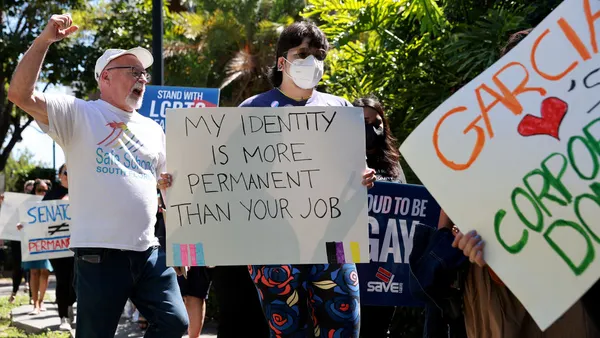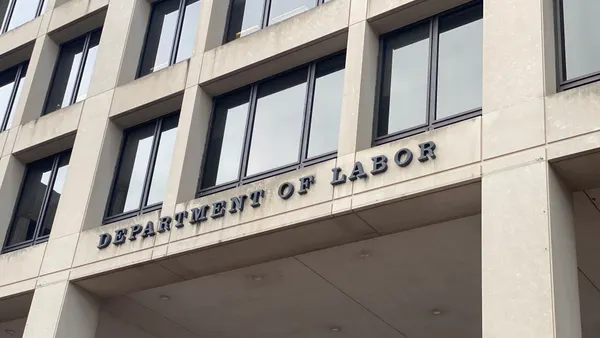Dive Brief:
- Employers say they're worried about workers' reactions when they begin to report CEO-employee pay ratios next year, according to a Willis Towers Watson (WTW) poll. A new U.S. Securities and Exchange Commission (SEC) rule requires publicly held companies to disclose CEO-to-worker pay ratios. WTW polled 360 executives and compensation experts last month, and roughly half said that forecasting how their employees will react to the ratio disclosure is their number one implementation challenge for the rule.
- In addition, 39% of respondents said their greatest challenge in complying with the SEC's requirement involved calculating the pay ratio. Their next greatest challenges are getting correct pay data (38%), deciding how to present their disclosure (37%) and determining how their pay ratio stands up against their peers, their industries and the market (35%).
- According to WTW, 48% of respondents haven't decided how they'll communicate the pay ratio to employees, 39% plan to have their organization's leadership answer employees' questions, 16% are preparing managers for discussions with workers, and 14% have a detailed communication plan to inform workers. About 14% of respondents don't plan to inform workers at all.
Dive Insight:
Companies whose CEO-to-worker pay ratios show great disparities probably have good reason to worry about employees' reaction to the information. A 2016 Glassdoor survey found that highly compensated CEOs at big, publicly held U.S. companies receive much lower approval ratings from employees than CEOs who aren't paid as much. The SEC can't dictate what CEOs should be paid, but it does want more transparency from employers.
GOP lawmakers introduced a congressional bill to repeal Dodd-Frank, the law under which the rule was promulgated, but the proposal stalled in committee, leaving employers on the hook for compliance.
Employers may want to consider the benefits of getting ahead of this information, rather than allowing employees to come across it themselves. A common complaint among workers is that their organizations fail to keep them informed, and employers can't own information shared through the grapevine. Workers given the opportunity to ask questions won't have to fill in the gaps with rumors.











